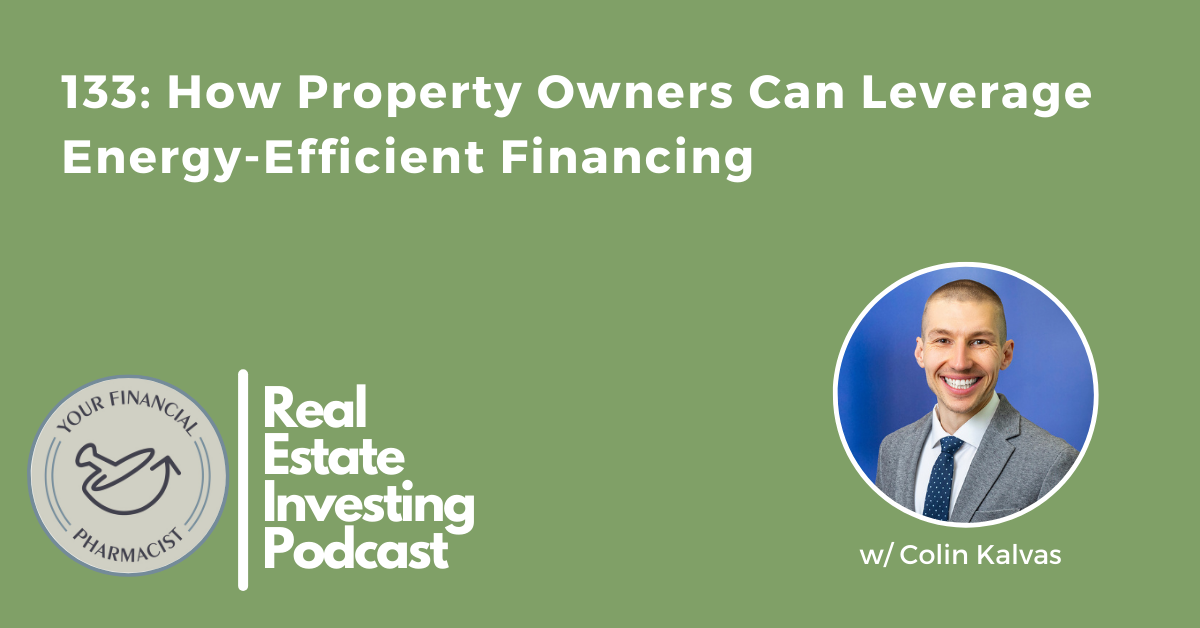The following post was written by Tim Church, PharmD, BCACP, CDE. This is third and final post in a series about developing a net worth mindset.
If you haven’t already done so, make sure to check out last week’s episode of the Your Financial Pharmacist Podcast where Tim Baker, CFP and I interview Tim Church to talk about what he learned from going into $200,000 in debt, his work around co-authoring Seven Figure Pharmacist and his advice for pharmacists and pharmacy students on how to develop a millionaire mindset.
Tim is a clinical pharmacy specialist in primary care at the West Palm Beach VA Medical Center and is the author of When Eating Right Isn’t Enough: The Top 5 Medications to Control Your Type 2 Diabetes.
As many of you already know, Tim is my co-author on Seven Figure Pharmacist: How to Maximize Your Income, Eliminate Debt and Create Wealth.
A Ramsey Solutions Master Financial Coach, Tim is passionate about helping people with their finances. You can follow him on Twitter @TimChurch85.
In Tony Robbins’s book Money: Master the Game, he describes the amazing story of Theodore Johnson, a UPS worker who never made more than $14,000/year during his career. Despite his meager salary, Johnson never saw this as a setback for achieving wealth.
Remarkably, at the age of 90 he had accumulated over 70 million dollars!
He didn’t accumulate this fortune by winning the lottery or receiving an inheritance. All he did was commit to contributing 20% of his paycheck and every Christmas bonus to his company stock. This enabled him to donate over 36 million to educational causes and set up a scholarship fund for children of UPS employees.
Theodore Johnson had a net worth mindset.
In Part 2 of this series, I discussed how present bias and the need to compare contribute to the phenomenon of lifestyle creep. While these are powerful forces against a net worth mindset, there are some strategies you can put in place to stay focused.
Strategies to maintain a net worth mindset
#1 – Create goals with a strong why.
Having specific, measurable goals with a deadline are important but if you don’t have a strong why behind them, they aren’t very meaningful. Suppose you want to become a millionaire by age 45. Why do you want to achieve that? Do you want the option of retiring early? Do you want to be able travel frequently? Do you want to start a scholarship fund? You may have a net worth goal in mind, but if you can’t determine why, it will be tough to stay motivated to achieve it. Here is a simple template you can use for writing your financial goals:
By <date to achieve goal> I want to <net worth or other financial goal you want to achieve> so that <why you want to achieve the goal>. To accomplish this, I will <steps you will take to make the goal become a reality>.
A hallmark of a net worth mindset is having goals that are bigger than your daily desires. When these are in place you will have ammo against the threats of present bias and comparing yourself to others.
#2 – Break unsupportive habits.
F.M. Alexander said “People do not decide their futures, they decide their habits, and their habits decide their future.”
Most of what we do on a daily basis is on autopilot through habits. This includes how we spend money. If you’re making daily trips for lattes, frequently eating out for lunch, having weekend shopping excursions, or participating in other activities that require spending, you may need break these habits. Check out this short video from Charles Duhigg, bestselling author of the book The Power of Habit, for information on how to break habits.
#3 – Automate contributions toward debt or savings.
You now know that present bias is your biggest threat to becoming wealthy. The longer you have access to money from your paychecks the more likely you are to spend it. Therefore, you need to protect yourself from yourself! The easiest way to do that is make your net worth contributions automatic.
If you want to make sure that a certain percentage of your income is going toward paying off debt or investing, have it automatically deducted from your paycheck or auto-debited from your checking account the same day your paycheck is deposited. This is really a great strategy if you want to allocate “extra” money toward debt that you typically would otherwise have in your hands after covering all of your living expenses.
You can fight lifestyle creep with this strategy by increasing contributions toward debt or savings any time you receive a raise by the same amount. If you never “see” the additional income and continue to have the same net paycheck, you will help fight the temptation of increasing your spending.
Net worth or live-for-today mindset?
If you want to live for today, are comfortable living with debt, and don’t care about securing your financial future, then a net worth mindset is not for you. However, if your goal is to build wealth, then it’s important to analyze how you are spending your money. Having a net worth mindset requires you to make good, consistent financial decisions that support growing your net worth.
Join the YFP Community!
What strategy or strategies can you implement that will help maintain a net worth mindset?
Recent Posts
[pt_view id=”f651872qnv”]








